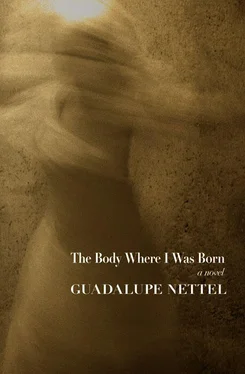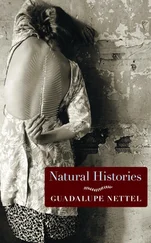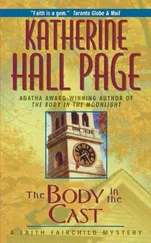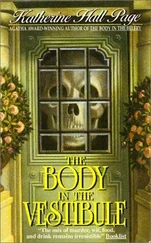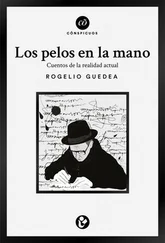Those in line outside and in the waiting room were, almost all of them, of the female sex. They were mothers, sisters, wives, and even mothers-in-law — or, as in my grandmother’s case, ex-mothers-in-law — who came to visit the inmates. Many brought thermoses with still-warm stews, tortillas, and supplies for the week, and that’s why it took so long for things to move; each item had to be inspected to see if it contained weapons or drugs. It wouldn’t be the first time. My father told us that one woman often hid marijuana in her son’s diapers, so that her husband could live off the sales. As far as I remember, we brought neither food nor pot. But what we did do was wear more formal clothing than usual. My brother, who was nine years old at the time, had on a navy blue sports jacket and I wore a skirt and white tights — a ridiculous or at least inappropriate getup that did nothing but emphasize how we didn’t belong. We weren’t the only güeros there. Other middle- and upper-class people were also waiting in the room and stood out like white mice in a crate of squirrels. Not that there was any complicity between us; everyone acted like they had no idea how they got there. Not even within each social class in Mexico does there exist a sense of belonging or fellowship. “Solidarity” was a word virtually unknown in those days, and would soon be completely discredited by a president. Even though we didn’t have a grocery basket or bag, we still had to go through several searches of our clothing and of my grandmother’s purse. They made us take off our shoes and inspected our socks. Rough jailkeeper’s hands passed over my entire body to make sure I wasn’t smuggling anything in. After this preamble, we were at last allowed into the space of the prisoners to be reunited with my father in a huge dining hall. Those who lived in the prison often called it “Reno Aventura” in allusion to the amusement park, Reino Aventura, built a few years earlier near where the Rinaldi sisters lived.
Astonishing are the tricks of memory. I know, for example, that I must have felt sorry for my father, seeing him at one of the tables with his eyes brimming with tears and the emotion of being with us, and yet my memory would have me believe that the austere and clean place wasn’t so bad, and that being locked up in there wasn’t so unbearable, as if truncating the distant images could mitigate a pain from the past. What hurts to remember are not the circumstances, which thankfully are different today, but rather the acknowledgment of what we felt before, and that, nobody, not even amnesia, not even the strongest painkiller, can change. The pain remains in our conscience like an air bubble with contents intact, awaiting invocation or, in the best-case scenario, to be allowed to come out.
After a few minutes of happy and emotional reunion (apparently we had grown and changed a lot since the last time we met), my father started joking around about his situation. He told us the nicknames of some of the prisoners and the most shocking and strange anecdotes they had told him. He smelled different but looked healthy and well-fed, something my grandmother reiterated several times. He still had the incredible sense of humor that had always marked him and often emerged during the greatest moments of sadness in our family history — at wakes, preoperative periods, and such — to meet the agony of our loved ones. Maybe it would take a while for someone who doesn’t know him to understand: it’s not at all a flippant attitude, but an astonishing ability to distance himself from the moment at hand and to laugh at it. While he did talk about how the guards were corrupt and how hard it was to find good company, he saved the worst stories for another time. Only years later would he tell us about the incidents of mistreatment and extortion he had witnessed.
My brother, who hadn’t said a word the entire time, at last let out the question that seemed to be tormenting him:
“Dad,” he asked, “where are the murderers?”
My father explained that in Dorm Five there were drug traffickers, and in Dorm Three, murderers. It was tacitly accepted that not every manslaughter could be judged the same way — some were involuntary or negligent, others committed in self-defense and therefore necessary, and still others were crimes of passion. That said, all the inmates did condemn and scorn rapists. Whenever a man accused of rape came to the prison, he had to pass through a long makeshift gauntlet of prisoners hell-bent on hitting him in the head and face. Dad told us they had placed him in Dorm Four, “the most laid-back one,” reserved for white-collar criminals.
Around that time, they had caught two of Mexico’s biggest drug lords of the eighties, known as Ernesto “Don Neto” Fonesca and Rafael Caro Quintero, along with a whole host of collaborators, so Dorm Nine was left entirely in their charge, and the rest had to be relocated to annexed buildings. A few times a week, there were parties organized for the drug lords with a brass band that played until dawn.
My memory of the visit — once we were actually together — is rather happy and tender. It was the reunion I had so badly needed. The food in prison wasn’t as terrible as you might think. A trio played in one of the farthest corners of the patio, giving the place ambience with their romantic songs, but not to the point of annoyance. At around six p.m. they announced it was time to leave. We said good-bye, wishing out loud that our next visit would be somewhere else. Once again, we had to get into long lines with people all squished together. Our grandmother decided we’d return in a taxi and so the trip home was much shorter.
What had my father done? What crime was he accused of, exactly? This is something that I — far from being indifferent about — didn’t want to know. I could have asked my mother or grandmother, who would have answered me without hesitation, but I didn’t want to. They would have definitely given me their own versions of the facts and their own moral judgments (my grandmother’s that of 1900, my mother’s that of the seventies). I had the chance during our visit to the prison to ask my father for his own point of view and to hear his story from his own lips — and still, I chose not to know. I wanted to show the world that, like his for me, my love for him was unconditional and I couldn’t care less about whatever fault they accused him of, or whether he was guilty or innocent. This was an unspoken agreement I made with myself, and I got the feeling my brother adopted a similar attitude. I knew perfectly well who my father was. I knew he was a loving and responsible person who had always attended to and cared for his family, even his ex-wife. I knew he was a generous man with a heart of gold, who moved by a child or old woman in need would empty his pockets; who didn’t cheat at games, not even for fun; and who almost always kept his word. Nevertheless, I wonder, Dr. Sazlavski, if deep down in this stance of mine hid a great fear of discovering something I wouldn’t like, something terrible and vile. Later I learned the crime levied against him was embezzlement, a word I had never heard before and that still sounds to me more like a venereal disease than a social defect, and all it means is the diversion of funds. In the years following my father’s release, I got the chance to talk to him about his time in prison. He swears — and I believe him unquestioningly — that if he had ever had the money he was accused of taking, he could have easily bought his freedom in our corrupt society. The truth is my father was left without a cent or a place to lay his head. Part of his sentence was to give up all of his belongings and properties. Luckily, we were able to hold onto an apartment and our country house, which after the divorce had been put in my mother’s name and today represents a significant part of our family inheritance.
Читать дальше
